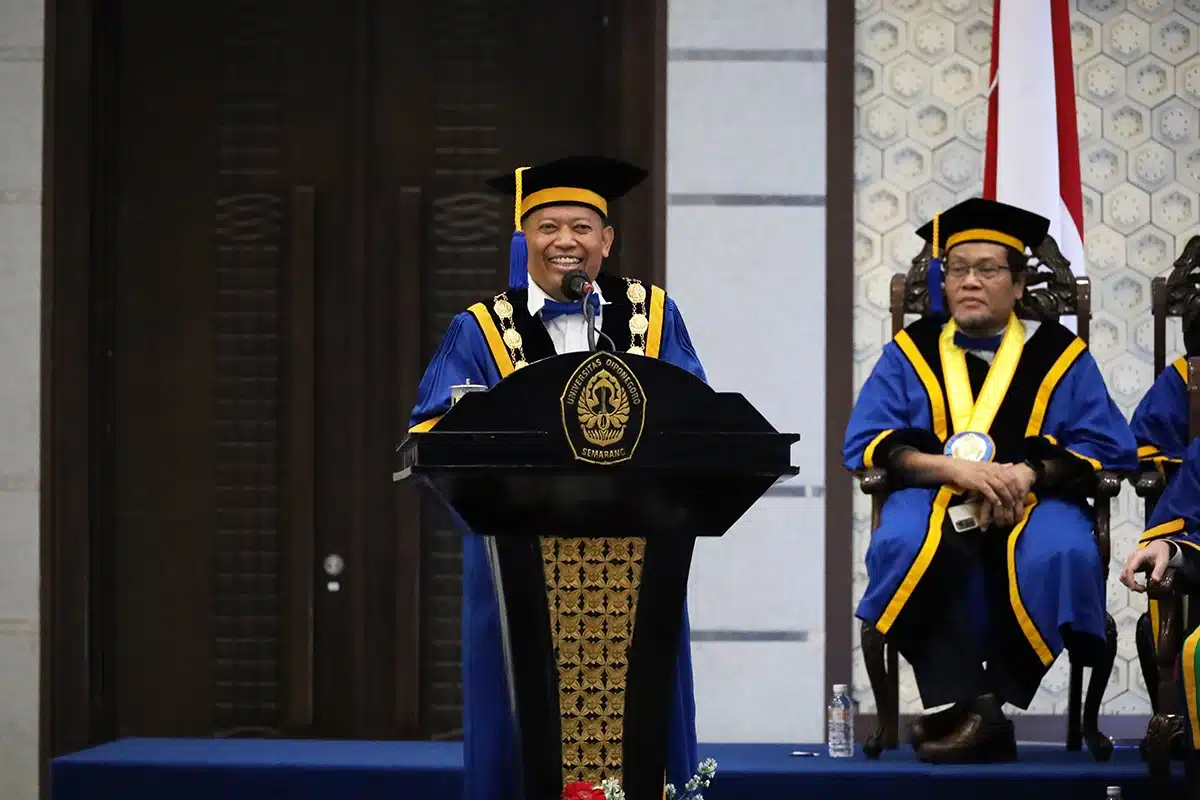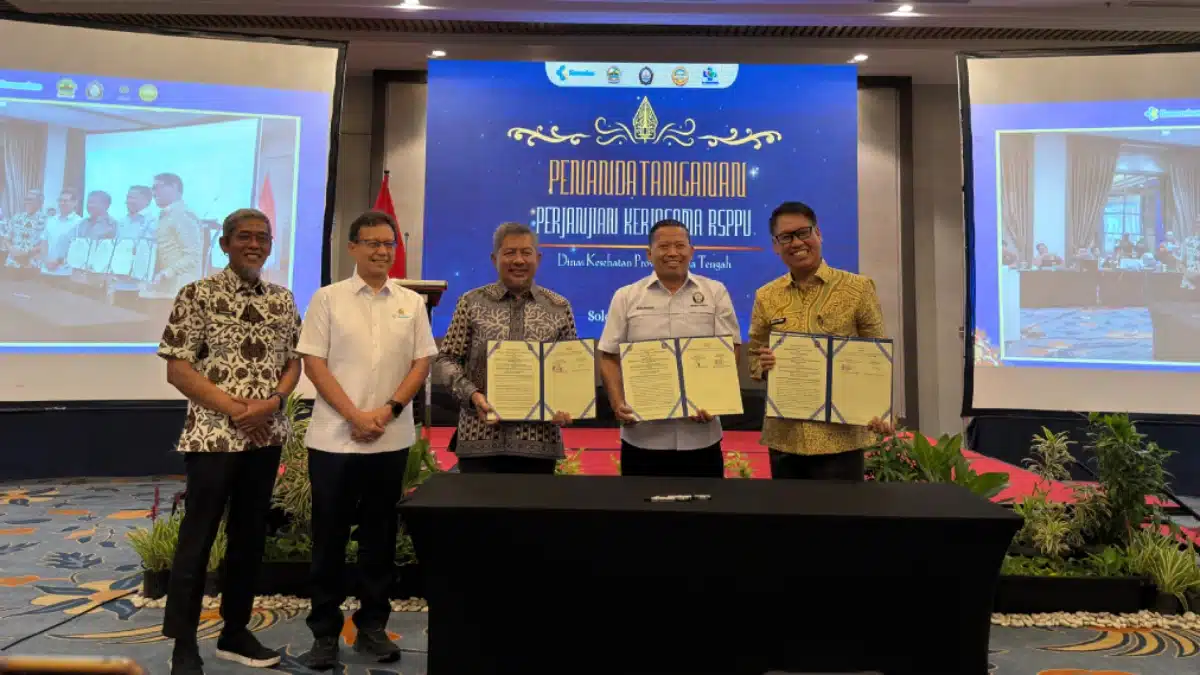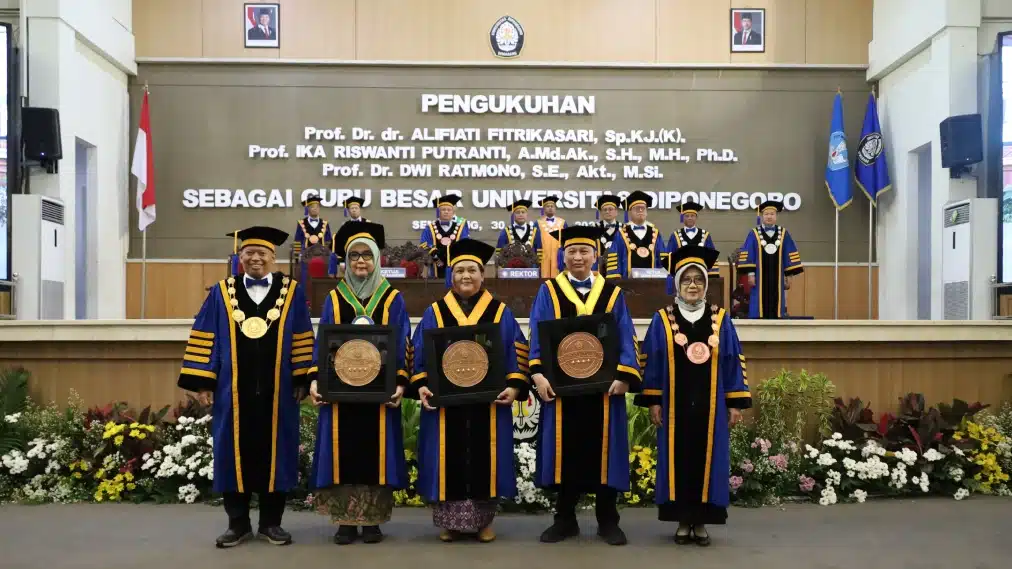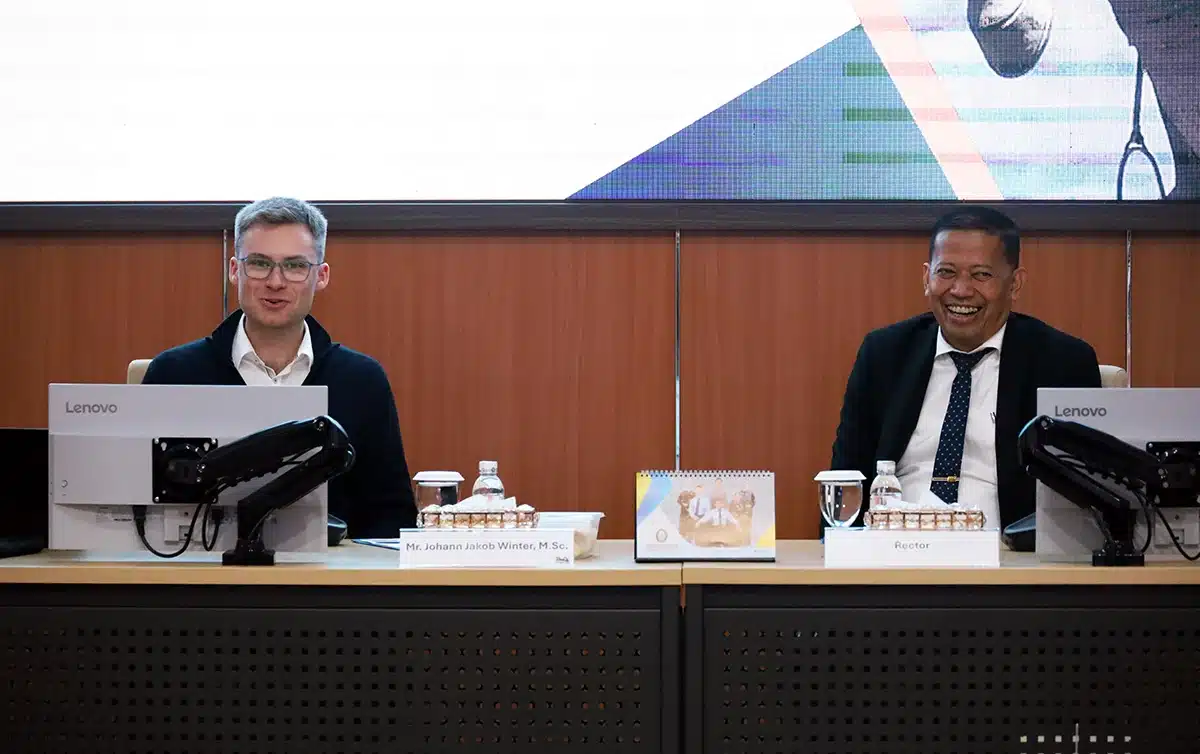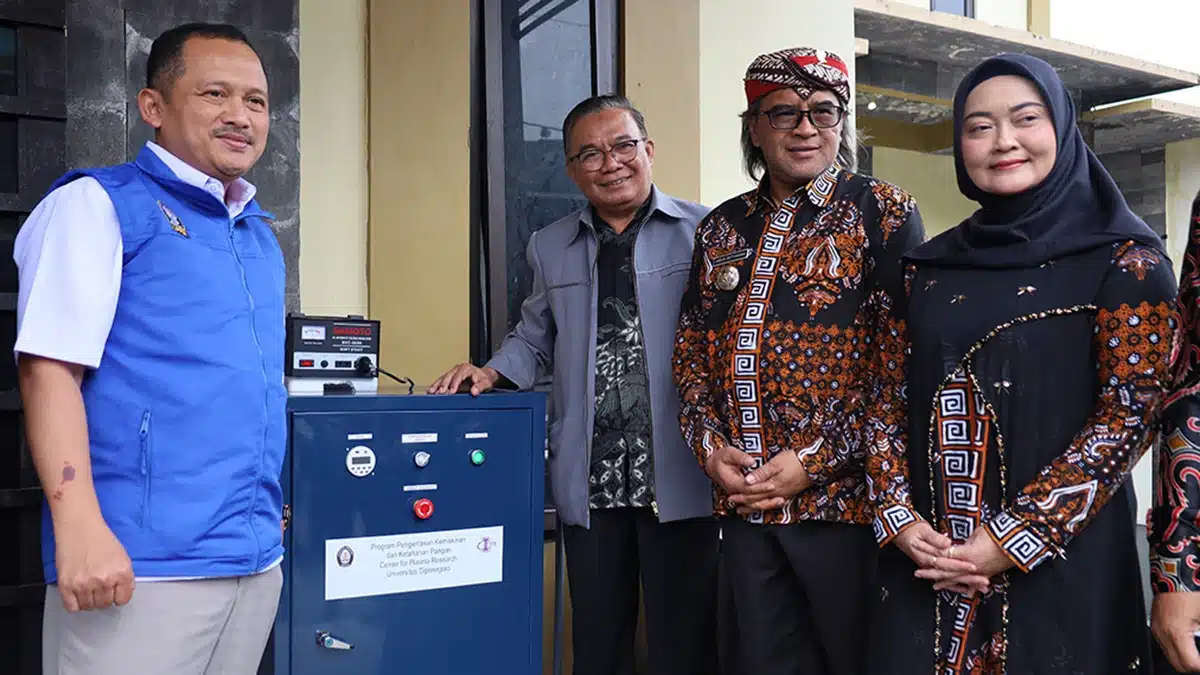“The strategic benefits of the Gembong Reservoir in Pati Regency are as flood control and support for food security affected by climate change and anthropogenic activities in land use. The ecological implications of the dynamics of changes in water availability are analyzed through mathematical modeling based on empirical data as part of efforts to manage sustainable reservoirs in mitigating climate change,” said Dr. Drs. Kartono, M. Si., lecturer at the Faculty of Science and Mathematics, Diponegoro University, graduated from Doctoral Program of Environmental Science at Undip in 2021.
 His research from the perspective of Environmental Science begins by analyzing the dynamics of local daily rainfall which is the main factor that determines the volume of water from the rain-fed reservoir. The local rainfall pattern does not follow a monotonic phenomenon according to the Mann-Kendall test, while the annual accumulation is predicted to increase according to the SARIMA and ARIMA models. The dynamics of the water volume of the reservoir is analyzed through Richards logistic growth modeling and Newton’s negative exponential in the water flow operation. Based on this mathematical model, it is possible to determine the time of release of water to ensure the resilience of the reservoir under saturation conditions. The balance between the interests of the surrounding community, farmers who receive direct benefits and the reservoir authority needs to be considered in managing sustainable water availability. Compensation through community empowerment around the reservoir needs to be given appropriately in order to reduce the potential for conflict of interest. Community participation is needed in the management and protection of reservoirs.
His research from the perspective of Environmental Science begins by analyzing the dynamics of local daily rainfall which is the main factor that determines the volume of water from the rain-fed reservoir. The local rainfall pattern does not follow a monotonic phenomenon according to the Mann-Kendall test, while the annual accumulation is predicted to increase according to the SARIMA and ARIMA models. The dynamics of the water volume of the reservoir is analyzed through Richards logistic growth modeling and Newton’s negative exponential in the water flow operation. Based on this mathematical model, it is possible to determine the time of release of water to ensure the resilience of the reservoir under saturation conditions. The balance between the interests of the surrounding community, farmers who receive direct benefits and the reservoir authority needs to be considered in managing sustainable water availability. Compensation through community empowerment around the reservoir needs to be given appropriately in order to reduce the potential for conflict of interest. Community participation is needed in the management and protection of reservoirs.
“Based on the analysis of ecological implications, it can be concluded that the abundance of water has the potential to trigger local hydro-meteorological disasters. Planting trees that can protect soil resilience, and followed by adaptation to the selection of plant species by farmers in the use of irrigation water as part of their mitigation actions.” explained Dr. Kartono (Lin-Arbi / Public Relations)



